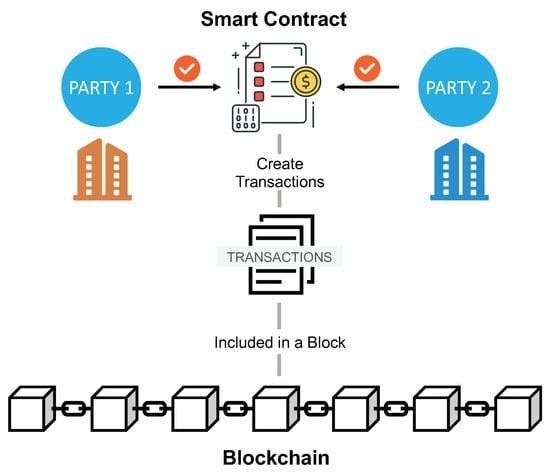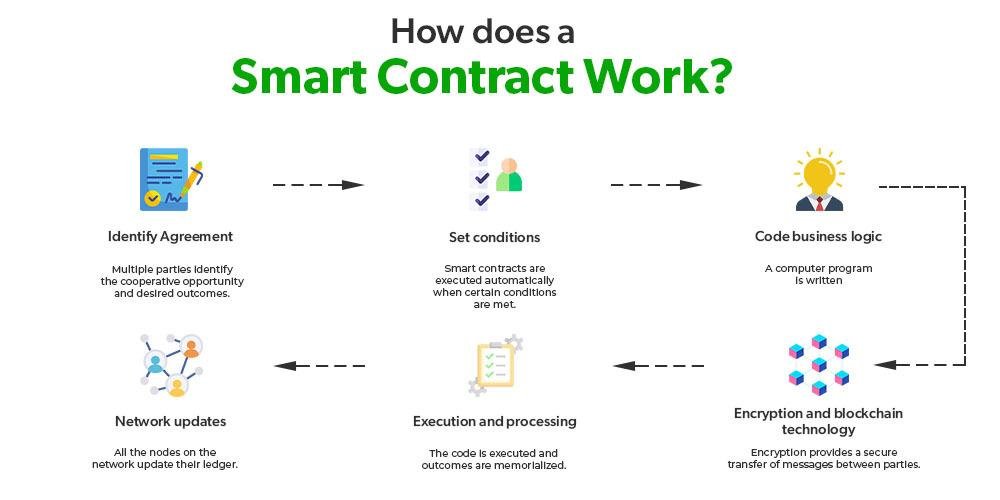How Smart Contracts Are Shaping the Future of Legal Services

Introduction
In today’s world, where technology is deeply woven into our daily lives, the legal field is undergoing a major change that could reshape how law is practiced. At the heart of this change are smart contracts—digital agreements that automatically execute themselves once certain conditions are met, with the terms written directly into computer code. These contracts, powered by blockchain technology, are no longer just an idea but a growing reality that is transforming how legal services are provided. As businesses and individuals face increasingly complex transactions, smart contracts offer a faster, more transparent, and secure way to handle agreements. This article explores how smart contracts are changing the future of legal services and why they represent a big shift in trust and accountability in the legal profession.

Exploring the Fundamentals of Smart Contracts and Their Legal Implications
Smart contracts are transforming how agreements are formed. They are self-executing contracts, where the terms of the deal are written in code and run on a blockchain. Blockchain makes these contracts secure, transparent, and impossible to change once they’re deployed. Some important characteristics of smart contracts include:
- Automation: They automatically carry out transactions when certain conditions are met.
- Trust: All parties can trust that the contract will be fulfilled without needing a middleman.
- Efficiency: They eliminate the need for paperwork and manual processes, speeding up transactions.
However, as smart contracts become more common, they raise important legal questions. Legal systems need to figure out how to recognize and enforce these digital contracts. Some key issues to address include:
| Aspect | Consideration |
|---|---|
| Legal Status | Are smart contracts recognized as legally binding agreements? |
| Jurisdiction | Which laws govern these digital agreements? |
| Dispute Resolution | How to resolve disputes stemming from algorithmic execution? |

Revolutionizing Contractual Agreements Through Automation and Transparency
The way legal agreements are made is being deeply transformed by smart contracts. These digital contracts, running on blockchain, allow agreements to execute automatically, manage themselves, and enforce their terms without intermediaries. This change leads to significant improvements in efficiency and reduces the chances of disputes, as the terms are clear and cannot be altered. Here are the benefits:
- Cost Savings: Lower legal costs by cutting out the need for middlemen.
- Speed: Contracts are carried out immediately when the conditions are fulfilled.
- Access: Easier for businesses of all sizes to get involved in legal agreements.
As smart contracts become more widely adopted, the role of lawyers may shift. Instead of focusing on drafting and reviewing contracts, lawyers might take on more of a strategic advisory role. The table below shows how legal work is evolving:
| Traditional Role | Future Role |
|---|---|
| Drafting contracts manually | Supervising the setup of smart contracts |
| Negotiating terms | Advising on strategic implications of contract outcomes |
| Handling dispute resolution | Focusing on complex legal interpretations and arbitration |
Read More: Using Email Campaigns to Nurture Leads in Legal Services

Navigating Challenges and Risks in the Adoption of Smart Contracts
While the rise of smart contracts presents a major opportunity, it also comes with challenges. First, both legal professionals and clients need to understand how these digital agreements work. Without this knowledge, misunderstandings could lead to disputes over contract execution. Another issue is interoperability—different blockchain platforms may not work together easily, making it difficult for legal professionals to manage smart contracts across multiple systems.
Moreover, the legal validity of smart contracts remains unclear in some areas, as existing laws may not be set up to handle these new technologies. This raises concerns about whether they can be enforced, especially in places where the legal framework hasn’t adapted. Finally, the potential for security flaws in the code could lead to financial losses. To tackle these challenges, legal experts need to focus on risk management, invest in cybersecurity, and push for clearer regulations to ensure smart contracts are trusted and enforceable.

Future Directions: Integrating Smart Contracts into Traditional Legal Frameworks
The integration of smart contracts into traditional legal systems is an exciting opportunity for the future of law. This will require collaboration between technology experts and legal professionals to find ways for digital contracts to work alongside current laws. Blockchain’s decentralized nature means that traditional contract enforcement methods may need to adapt. Legal professionals will need to figure out how to incorporate self-executing contracts and their unchangeable nature into the existing system.
For this integration to succeed, key players in the legal world must work together to create guidelines that allow smart contracts to function within traditional legal norms. This could include:
- Setting standards for creating legally binding smart contracts
- Developing educational programs for both lawyers and tech developers
- Promoting partnerships between legal and technical professionals to solve challenges
- Encouraging law changes to recognize and support smart contracts
One important step could be creating hybrid platforms that combine smart contracts with traditional legal systems. These platforms could provide tools for businesses and individuals to use smart contracts while ensuring they comply with current laws.
In Retrospect
As we look at the intersection of law and technology, it’s clear that smart contracts are more than just a passing trend—they are reshaping the legal industry. These contracts offer greater efficiency and transparency and are pushing legal services to become more accessible. However, the full potential of smart contracts is still unfolding, and they are not just changing how agreements are made—they are rethinking the entire process of creating, executing, and enforcing legal contracts.
The challenge now is not whether smart contracts will make an impact, but how legal professionals will embrace them to make the legal system more efficient and equitable. Moving forward, it will be crucial for lawyers, technologists, and lawmakers to collaborate and ensure that technology strengthens, rather than undermines, the principles of law. The journey toward a more advanced legal system has just begun, and smart contracts hold the promise of a future where agreements are clearer, faster, and more trustworthy for everyone.
















































































































































































































































































































































































































































































































































